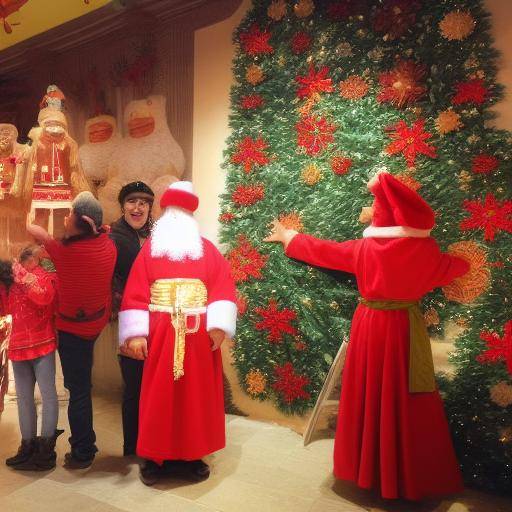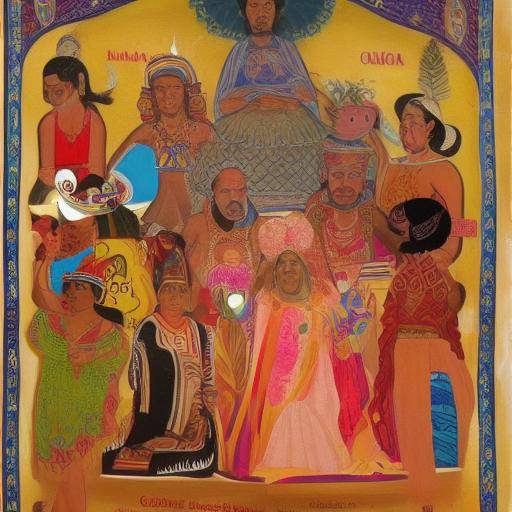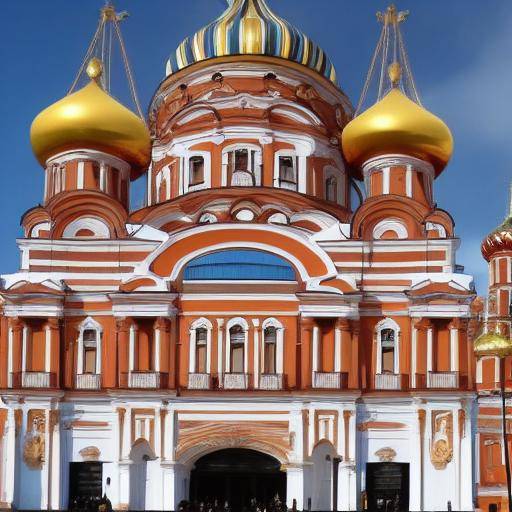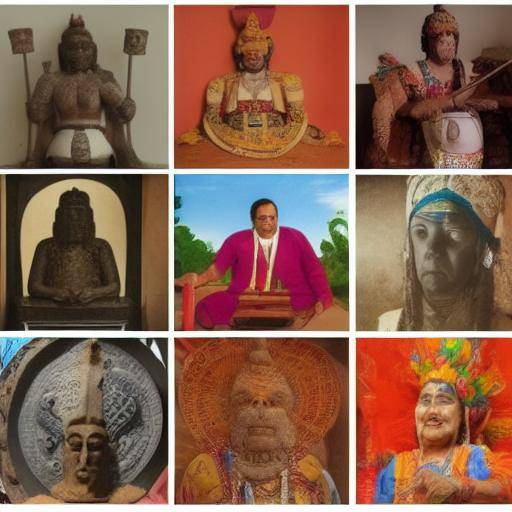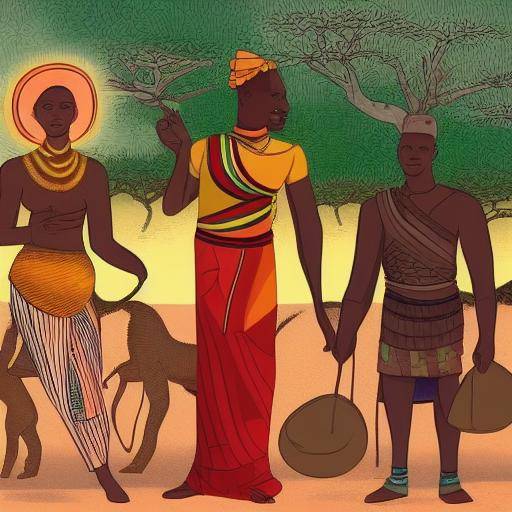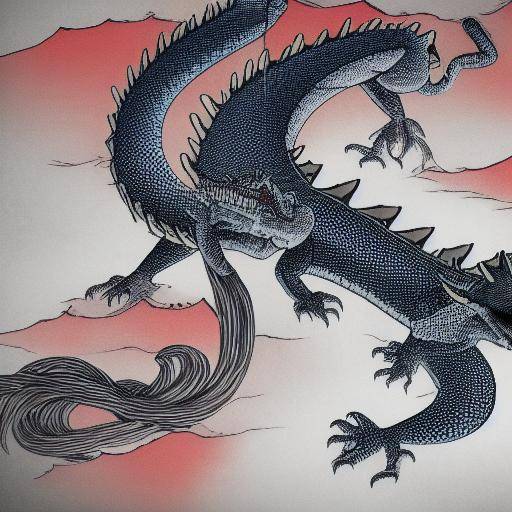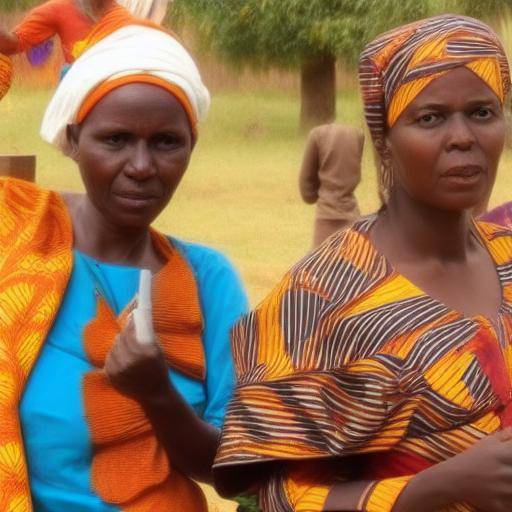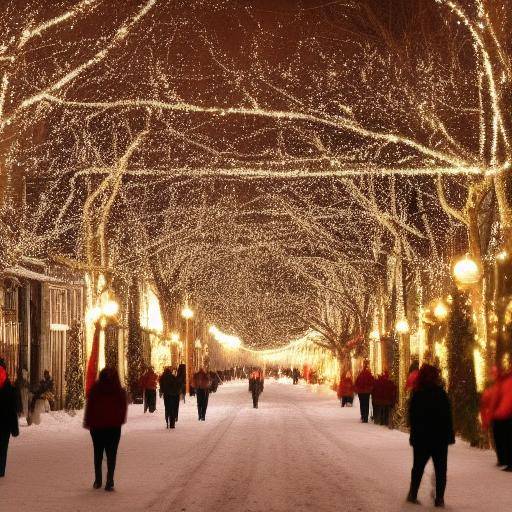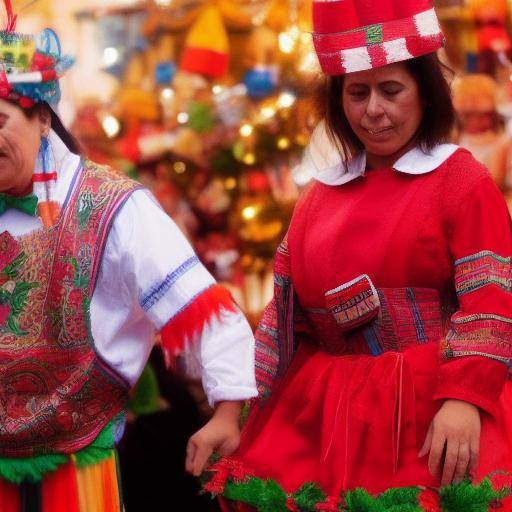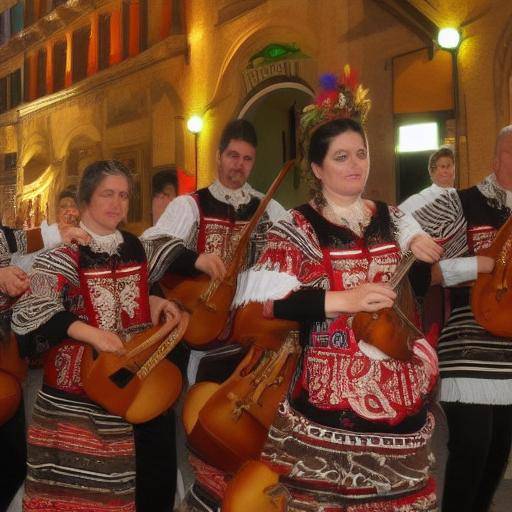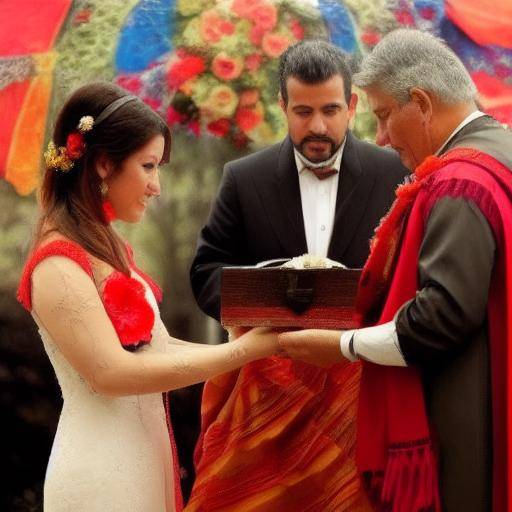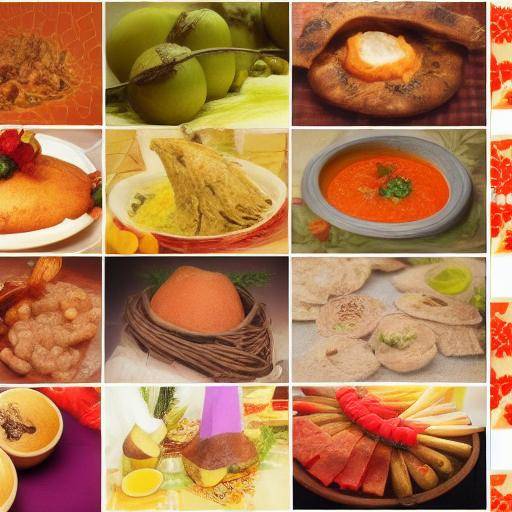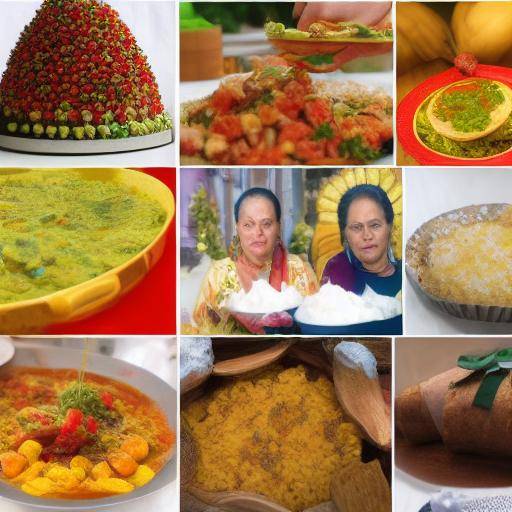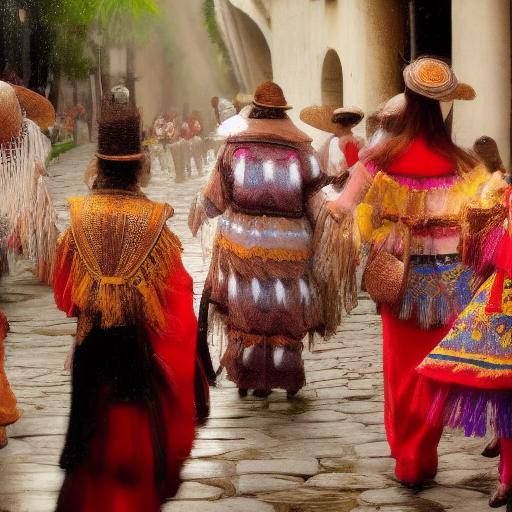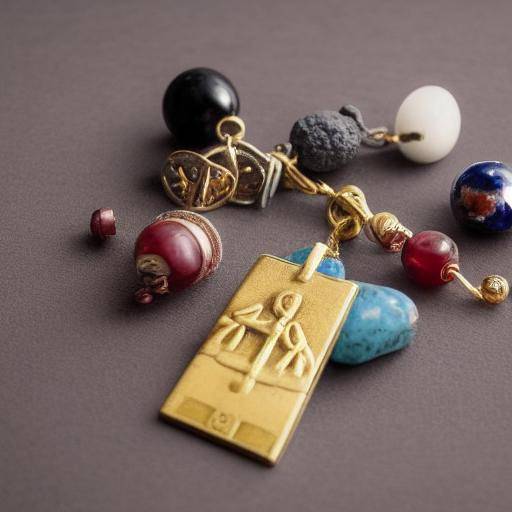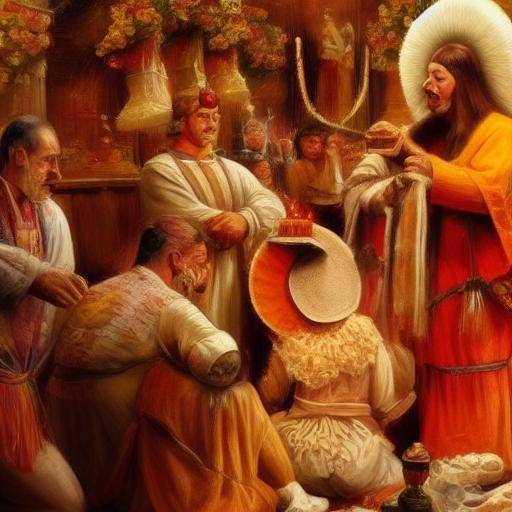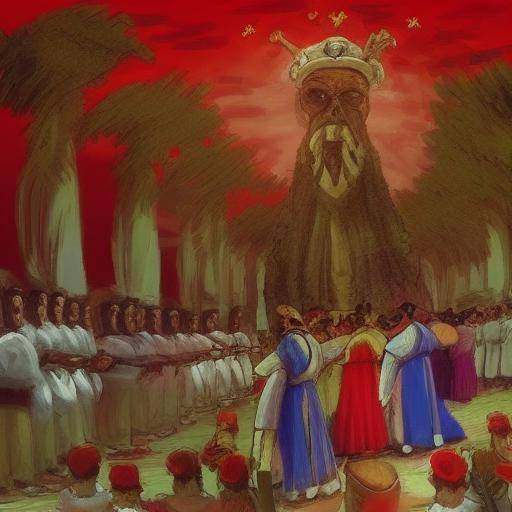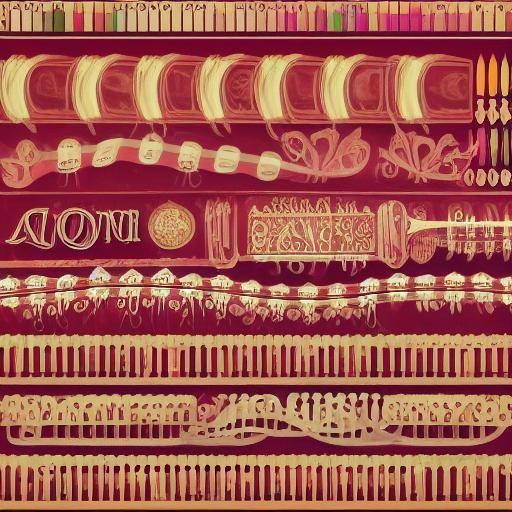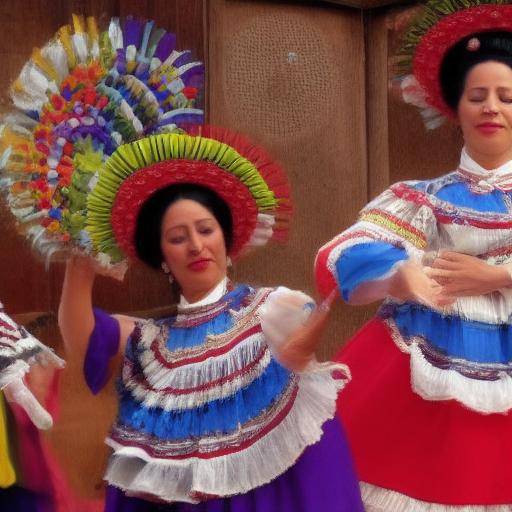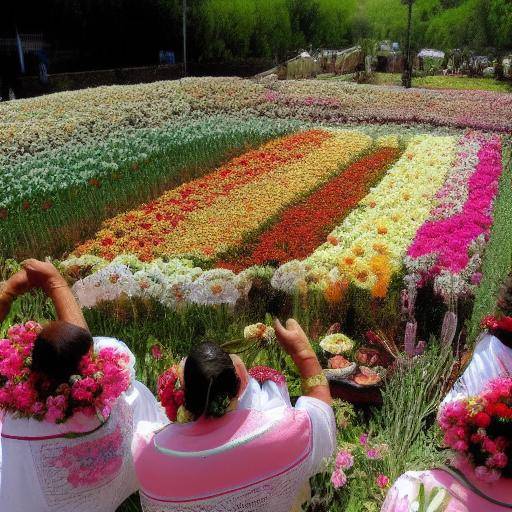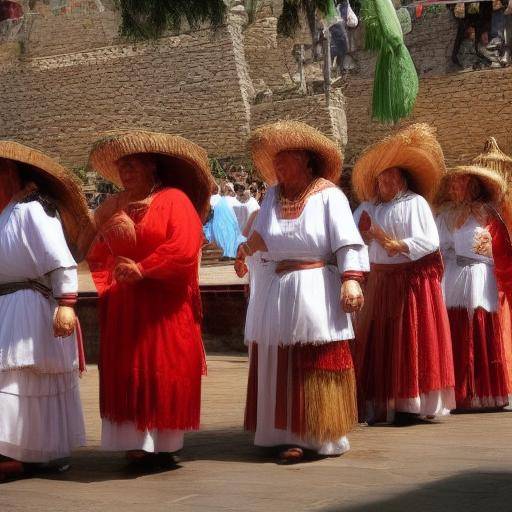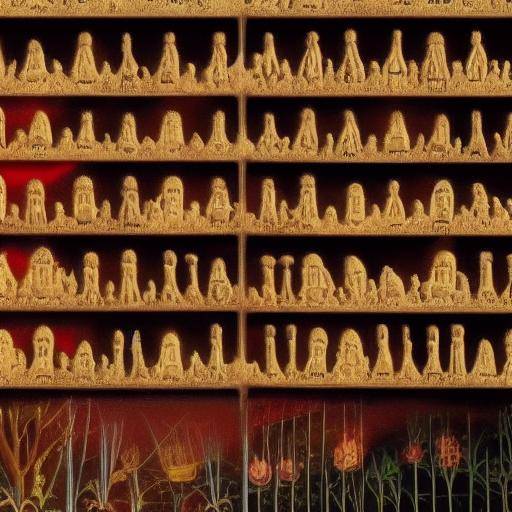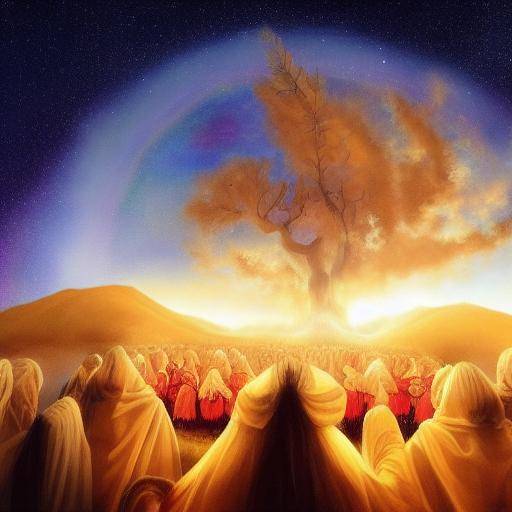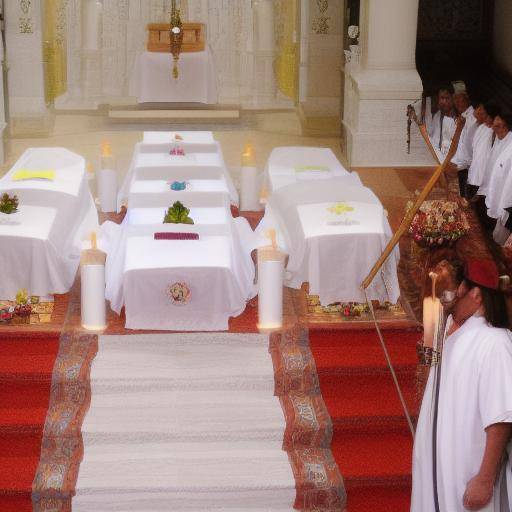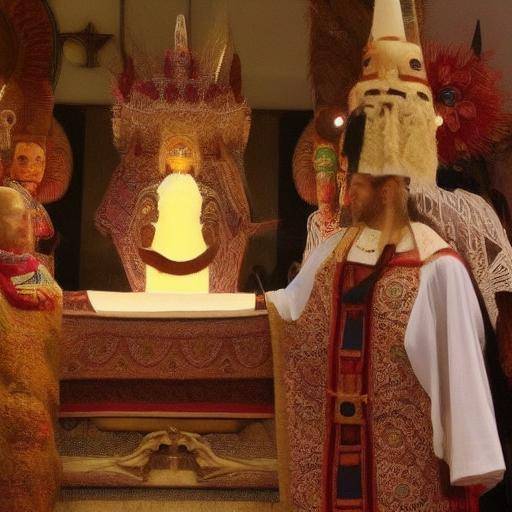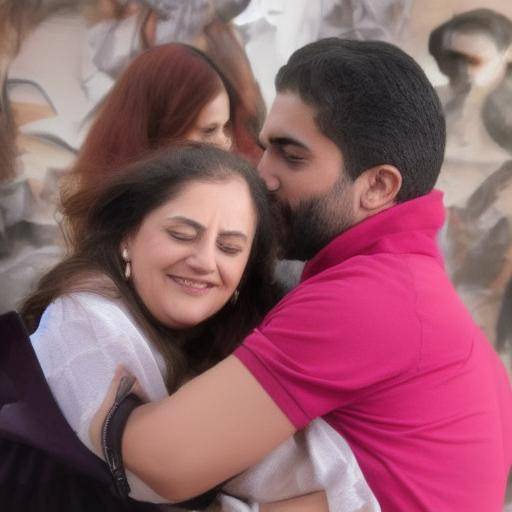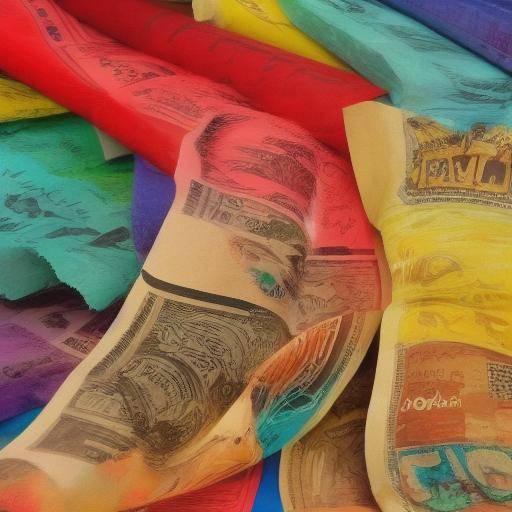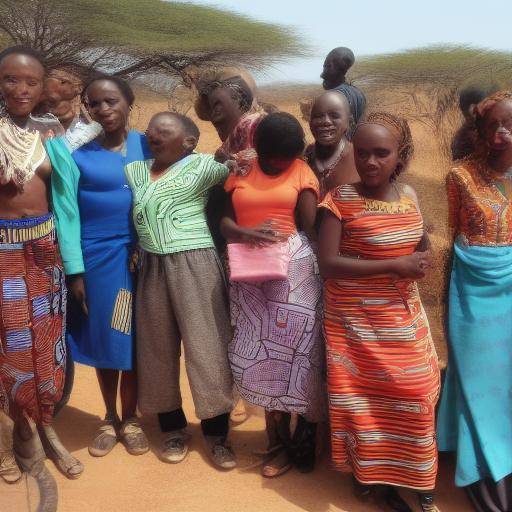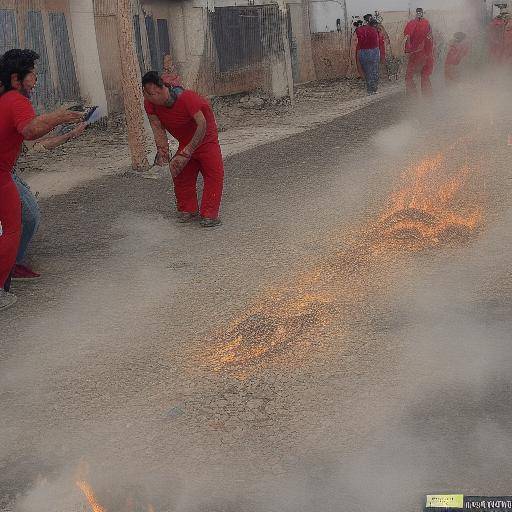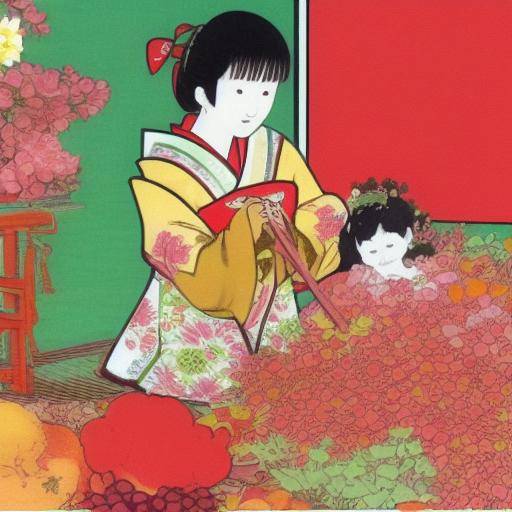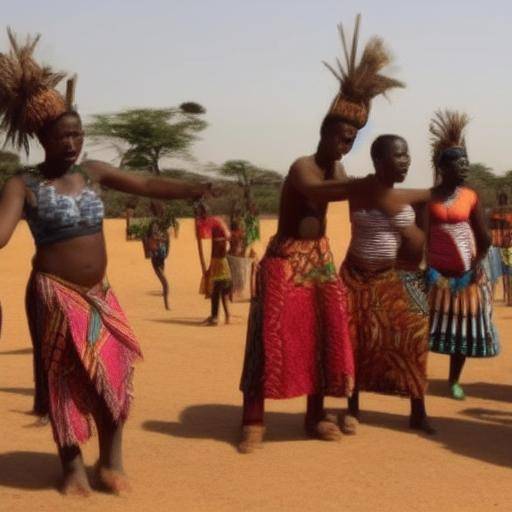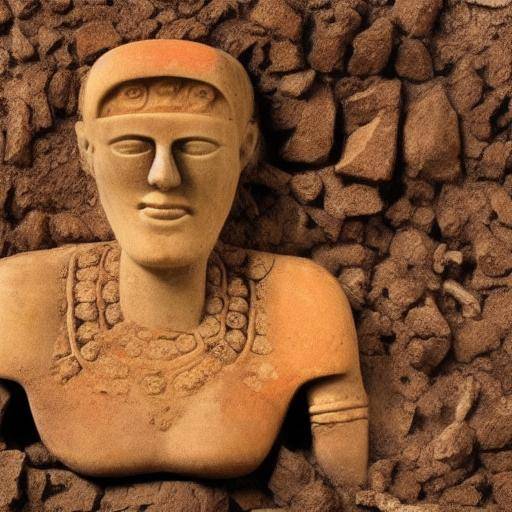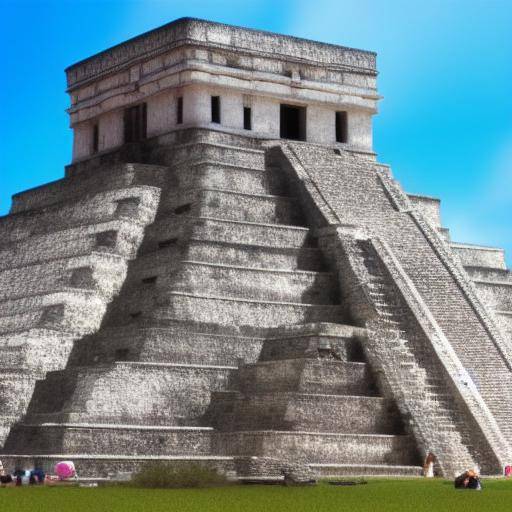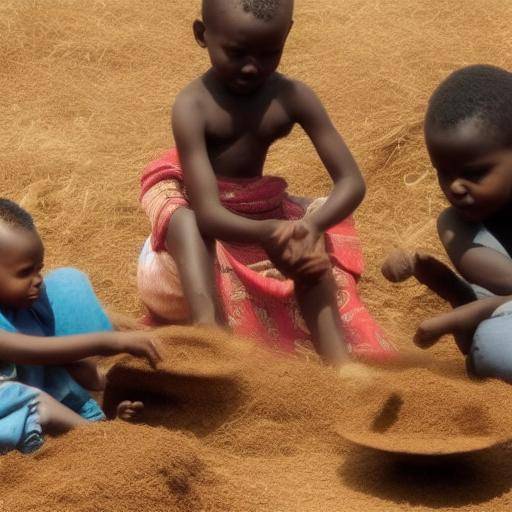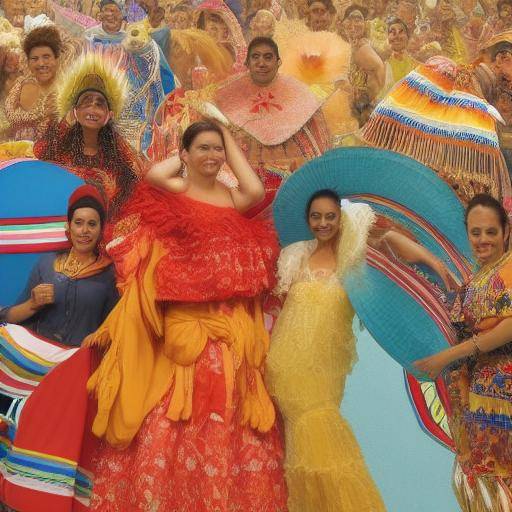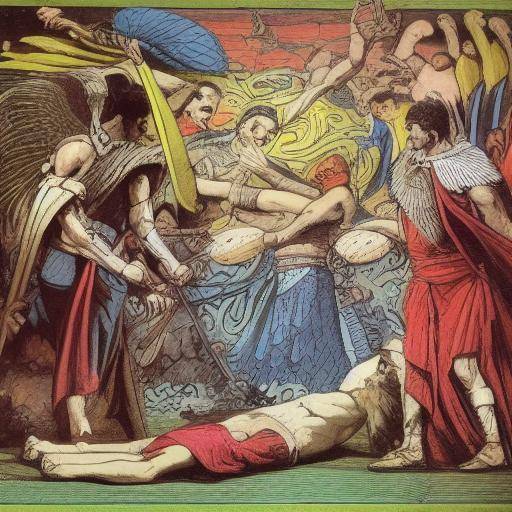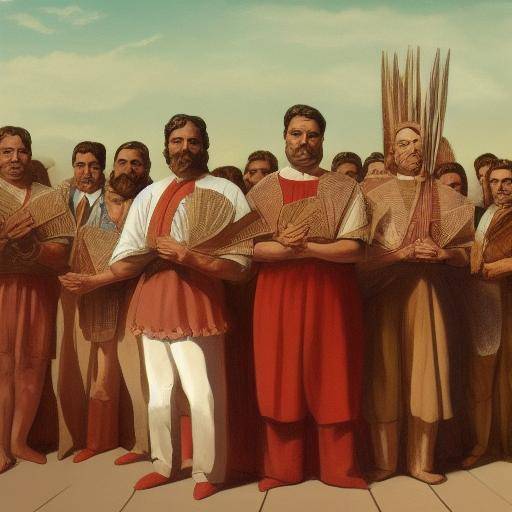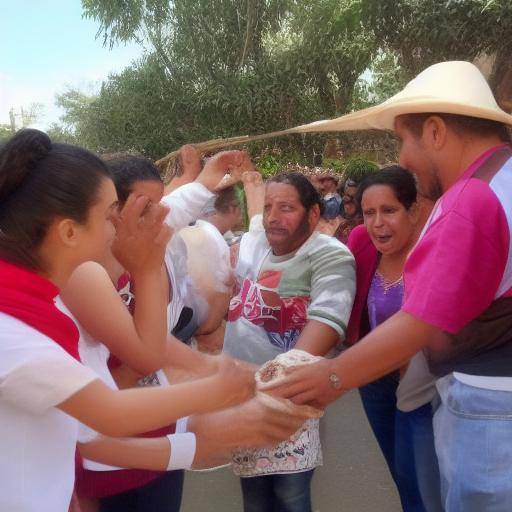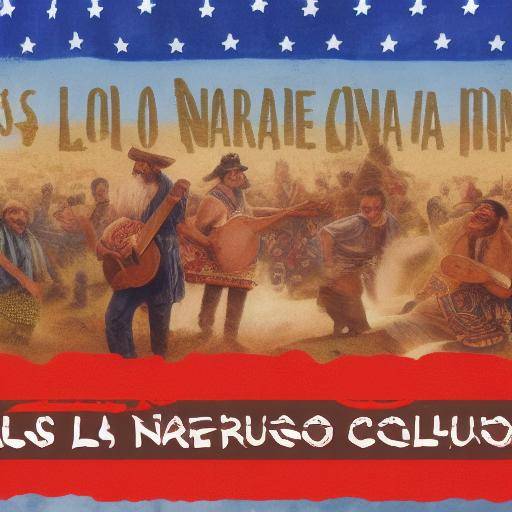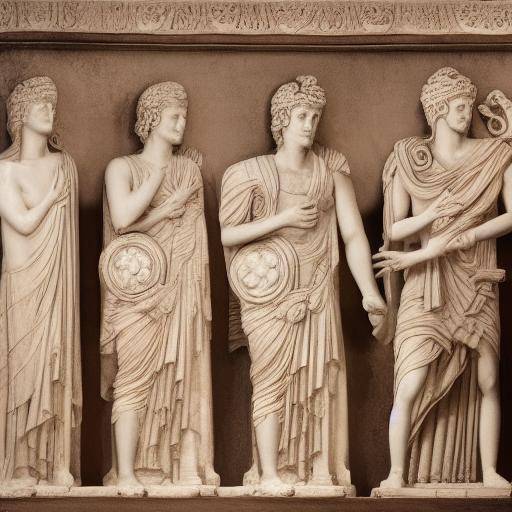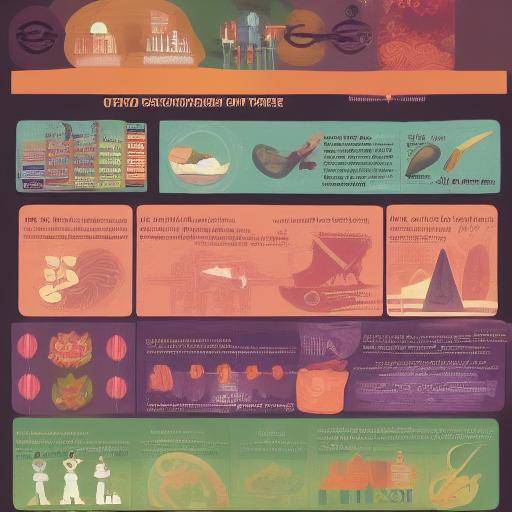
The rites of passage, present in various cultures around the world, are significant ceremonies that mark important transitions in a person's life. These rituals not only reflect the traditions and beliefs of a community, but also have a profound impact on identity and personal development. In this article, we will explore the meaning of the rites of passage in different cultures, their historical and contemporary importance, and their relevance in the present world.
Introduction
The rites of passage have been an integral part of human societies since time immemorial. These rituals, which symbolize the transition from one state to another, have transcended generations and continue to play a crucial role in the formation of individual and collective identities. In this article, we will immerse ourselves in the fascinating world of passing rites, exploring its origins, its evolution throughout history, its meaning in different cultures and its relevance in modern society.
History and Background
The rites of passage have ancestral roots and go back to the first human civilizations. In ancient cultures, these rituals were carried out to mark significant milestones in an individual's life, such as birth, puberty, marriage and death. These ceremonies had profound links with religious beliefs, tradition and social structure of each community. Over the centuries, the rites of passage have evolved in response to cultural, socio-economic and technological changes, adapting to contemporary realities.
The rites of passage have not only been maintained as an expression of cultural identity, but have also acquired new meanings and functions in modern society. From tribal initiations to graduation celebrations, these rituals continue to play a key role in the formation of personal identity and in the cohesion of communities.
Detailed Analysis
The importance of the rites of passage lies in its ability to provide a symbolic framework that guides individuals through important transitions in their lives. These rituals not only mark the passage from one state to another, but also transmit accumulated values, standards and knowledge over generations. For example, in Western culture, the graduation of secondary school symbolizes the transition from youth to adulthood and is celebrated with specific rituals, such as the delivery of diplomas and the ceremony of throwing birretes into the air.
Modern society has also generated new rites of passage, such as access to social networks or obtaining the driver's license, which reflect contemporary realities and the integration of technology into everyday life. These rituals act as markers of new stages in life, offering people a sense of achievement, autonomy and belonging.
Exhaustive examination
The rites of passage play a crucial role in consolidating cultural identity and social cohesion in different contexts around the world. These rituals offer individuals a sense of belonging and connection with their community, promoting the transmission of traditions, values and knowledge to future generations. In addition, the rites of passage promote solidarity and mutual support within communities, strengthening family and social ties.
In contemporary society, the rites of passage remain relevant, not only in the cultural sphere, but also in professional and educational contexts. For example, oath ceremonies at university graduation symbolize the transition from students to professionals, marking the beginning of their careers. These rituals not only represent an individual achievement, but also symbolize commitment to the values and ethics of the profession.
Comparative analysis
The variety of rites of passage in different cultures is a testimony to the diversity and richness of human traditions. While some cultures celebrate the transition to adulthood with elaborate and symbolic rituals, others can focus on ceremonies commemorating events such as marriage or paternity. Despite cultural differences, the rites of passage share the common function of marking significant milestones in people's lives and strengthening community ties.
Through a comparative analysis of the rites of passage in different cultures, it is possible to identify similarities and differences that enrich our understanding of human diversity. For example, initiation ceremonies in the indigenous communities of Latin America can be compared to the passing rituals of African cultures, revealing similarities in the social and spiritual function of these rituals despite cultural differences.
Practical Tips and Accessible Tips
If you are interested in incorporating rituals of passage into your own life or community, it is important to consider the meaning and relevance of these rituals within the specific cultural context. The rites of passage can enrich the human experience by providing a sense of belonging, purpose and connection with the past and the future. By seeking to incorporate passing rituals into your life, it is essential to involve relevant stakeholders and respect the cultural authenticity of these rituals.
In organizing rituals of passage, whether in family, educational or community settings, it is crucial to consider the diversity of experiences and perspectives of participants. Pass rituals must be inclusive and respectful, recognizing the various identities, experiences and values present within the community. In doing so, the social fabric is strengthened and a sense of belonging and mutual support is encouraged for all persons involved.
Final Reflections
The rites of passage are a unique expression of cultural wealth and the complexity of human experience. Through these rituals, societies have celebrated, honored and marked vital transitions significantly throughout history. In contemporary society, rites of passage continue to play a crucial role in the formation of individual and collective identities, providing a symbolic framework for understanding and celebrating the different milestones in life.
As we explore the richness and diversity of the rites of passage in different cultures, we renew our appreciation for the traditions, beliefs and values that sustain humanity. Through mutual understanding and respect for the ritual practices of diverse cultures, we can build bridges that promote intercultural understanding and the strengthening of global communities. The rites of passage, in its variety and meaning, continue to be a lasting witness of the creativity, imagination and wisdom of humanity throughout the time.
Frequently asked questions
What is the importance of the rites of passage in modern society?
The rites of passage play a crucial role in modern society by providing a symbolic structure to mark significant transitions in people's lives. These rituals offer a sense of belonging, purpose and connection with the community, strengthening social ties and contributing to the formation of individual and collective identities.
How can the rites of passage enrich the human experience?
The rites of passage enrich human experience by providing a symbolic framework to understand and celebrate vital transitions. These rituals foster a sense of continuity and connection with the past and the future, promoting a greater sense of belonging, purpose and meaning in people's lives.
What is the role of the rites of passage in the preservation of cultural identity?
The rites of passage are a fundamental expression of cultural identity, transmitting traditional values, beliefs and knowledge through generations. These rituals are essential vehicles for preserving and transmitting the wealth of cultural heritage and strengthening social cohesion within communities.
Are there significant differences in cross-cultural rites?
Yes, the rites of passage vary significantly between cultures, reflecting the different traditions, beliefs and values of each community. Although some rituals can share similarities in their symbolic function, the specific form and meaning of the rites of passage are unique to each culture.
How can step rites promote inclusion and diversity?
The rites of passage can promote inclusion and diversity by recognizing and celebrating the multiplicity of experiences, identities and values present within a community. In organizing rituals of passage, it is essential to consider the diversity of perspectives and experiences, ensuring that these rituals are inclusive and respectful for all people involved.
What are some contemporary examples of passing rites in today's society?
Some contemporary examples of passing rites include university graduation, wedding ceremonies, major birthday celebrations, initiation rituals in fraternities and deafness, and retirement events. These ceremonies mark significant milestones in people's lives and reflect the diversity of rituals in modern society.
Conclusions
The rites of passage, rooted in history and cultural diversity, continue to play a fundamental role in the formation of individual and collective identities in today's society. Through the exploration of its history, meaning and diversity, we have gained a deeper understanding of the importance of these rituals in human experience. By recognizing and celebrating the richness of passing rites in different cultures, we strengthen not only the connection with our traditions, but also the understanding and mutual respect among global communities. The rites of passage, in its variety and meaning, attest to the vitality and diversity of human experience throughout the time, providing a lasting legacy of creativity, imagination and wisdom transmitted to the generations to come.
With this article, we hope to have provided an enriching and insightful view of the rites of passage in different cultures, highlighting its historical and contemporary relevance. The rites of passage continue to be a subject of deep interest and meaning in the global scenario, and will undoubtedly continue to play a leading role in the configuration of individual and collective identities in the future.

